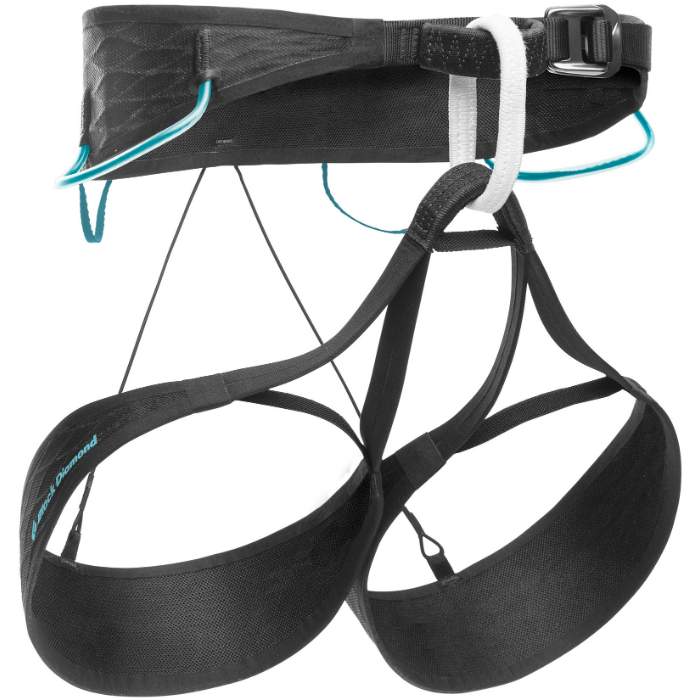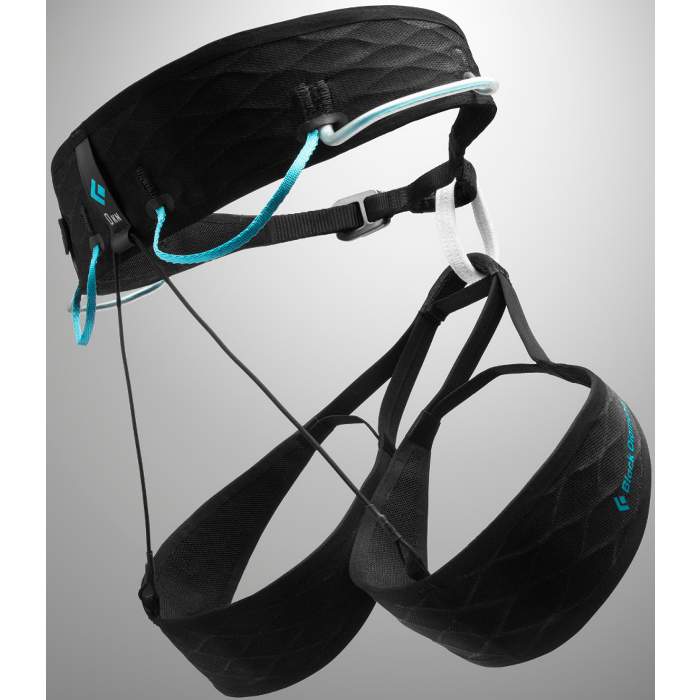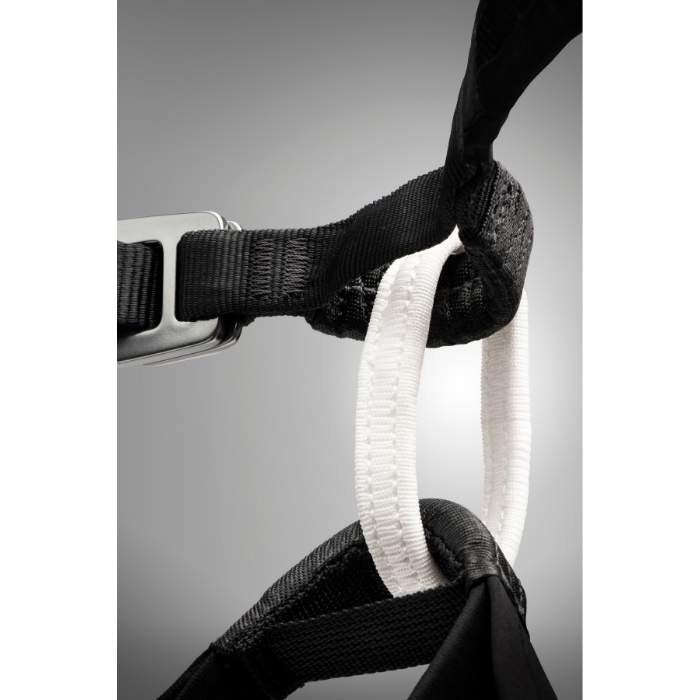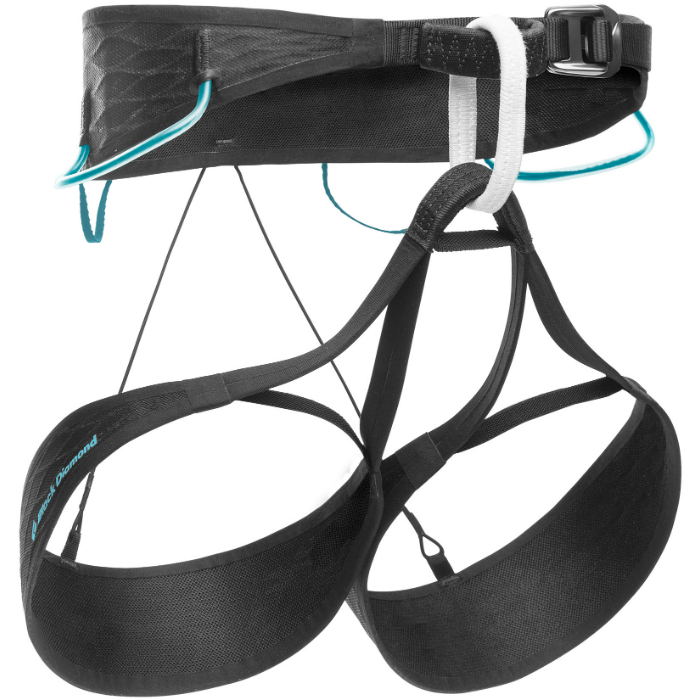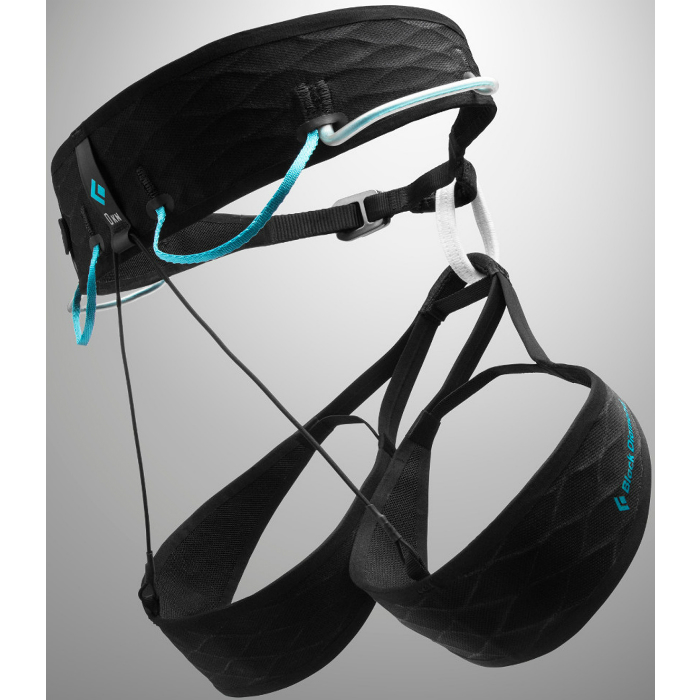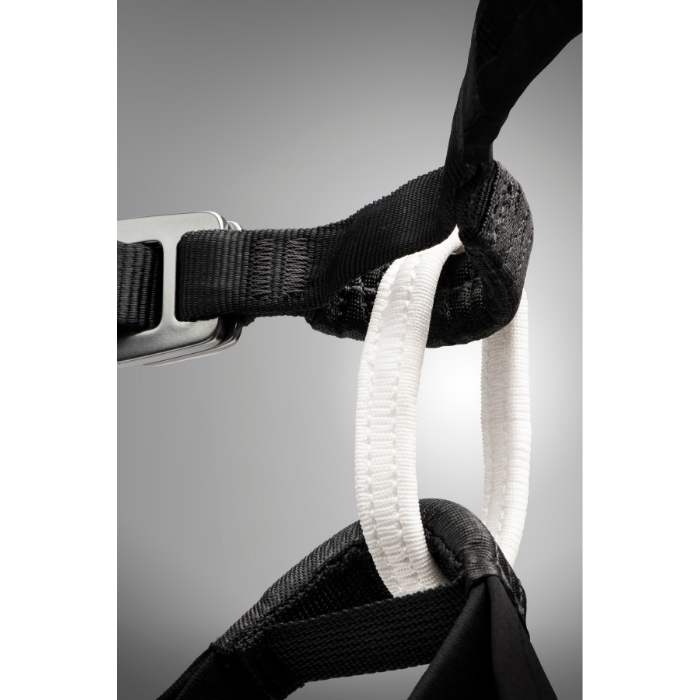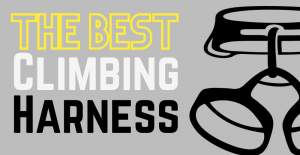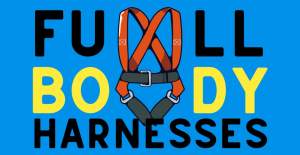airNET Women
Description
Built for the 2020 Olympics in collaboration with Adam Ondra, the airNET features airNET technology, which keeps the harness ultra-light yet comfortable, and an innovative Infinity Belay Loop, to create the ultimate competition harness on the market.
Developed in collaboration with BD Athlete Adam Ondra, the airNET is a cutting-edge harness built for the 2020 Olympics. Featuring patented airNET Technology—which is ultra-breathable for high-end performance while distributing loads evenly across the “net” during falls—the airNET also includes a patented Infinity Loop for belaying, which is durable, low profile, and eliminates the dreaded belay-loop-shift when dogging a route and the belay loop seam catches. At a svelte 235 grams (men’s medium) we’ve included two pressure molded gear loops in the front while keeping the rear gear loops low-profile webbing—a request from Ondra who had cut the back gear loops from his competition harnesses to save weight and reduce bulk. Black Dynex lower and upper tie-in points are durable and light, and the seamless, taped edges of the waistbelt and leg-loops proved next-to-skin comfort during intense redpoints.
Retail price
When you click a link below and then checkout online, no matter what you buy (climbing gear or not), we get a small commission that helps us keep this site up-to-date. Thanks!
Weight (g)  WeightIn grams, the weight, as stated by the manufacturer/brand. If there are differences in weight (due to multiple sizes or optional accessories) we'll list them here. The default weight is the middle-most size, often this is size M. | 227 g M : 227 g / 8.0 oz BD doesn't provide the weights for other sizes so we're working on gathering this info by hand, stay tuned! |
| Fit | Women |
| Sizes | XS, S, M, L, XL |
Gear Loops  Number of Gear LoopsGear loops are used to hold gear (quickdraws, cams, etc) onto your harness. 4 gear loops is most common. 
0 - 1 Gear LoopsMost often on full body harnesses or guide/gym style harnesses. 2-3 Gear LoopsMostly found on lighter harnesses made for [ski] mountaineering or high-end sport climbing where weight is a high priority. 4 - 5 Gear LoopsThe standard/most common number for climbing harnesses. Perfect for sport and trad. More Than 6 Gear LoopsDesigned for long multi-pitch and big wall climbing, found on harnesses made to hold the maximum amount of gear. Worth ConsideringOccasionally, the number of gear loops will change on a harness model depending on the size. There could be 7 gear loops for the med/large but only 5 gear loops for the xsmall/small. In this case we list the highest number for the filters, and then write an explanation on the product page like, “Size S/XS can only fit 5 gear loops.” | 4 Gear loops |
Ice Clip Slots  Ice Clip SlotIce clipper slots are made to fit a carabiner that holds ice screws. These slots are generally only used by ice climbers but there is no disadvantage to having them on your harness. 
Less than 40% of harnesses will have ice clipper slots. And those harnesses will usually have 2 or 4 slots, often located next to, or between, the gear loops. | No, 0 |
| Belay / Tie-In | One Loop |
| Waist Buckle Type | Quick Adjust |
| Leg Buckle Type | None (it stretches) |
| Drop Seat | No |
Haul Loop  Haul LoopTrad climbers often look for a haul loop as they're intended to haul a rope (second line) or pack (while you climb the chimney). 
A haul loop can also hold shoes or other accessories. Although not the intended use, it is also commonly used to hold a chalk bag. | Yes |
| Certification | |
| Size Chart | XS
Waist: 66-74 cm / 26-29 in Legs: 46-51 cm / 18-20 in S Waist: 71-79 cm / 28-31 in Legs: 51-56 cm / 20-22 in M Waist: 78-84 cm / 30-33 in Legs: 56-61 cm / 22-24 in L (will fit the lower range of XL) Waist: 84-91 cm / 33-36 in Legs: 61-66 cm / 24-26 in |
No reviews yet.
This is definitely a niche harness. Black Diamond states that this is the “ultimate competition and sport harness on the market” and it’s definitely a tough contender for that title! I also think those, like myself, who prioritize low weight and excellent pack-ability might be able to cross over into some traditional/alpine climbing use. I was able to comfortably carry my full rack up to a Black Diamond #3 Camelot with 10 alpine draws and my regular non-pro kit. If you’re carrying a double rack you’ll likely need to use a shoulder gear sling.
At £150 this isn't a cheap harness, but within the category of extremely lightweight, high performance harnesses the airNET sits proud in its place at the top, not just in terms of price, but in terms of its actual weight, its comfort, durability and features. Whilst I didn't use it in any Comps myself, I can see the airNET being used as my standard sport climbing harness for many years to come. Yes, it isn't for everyone, but it doesn't pretend to be either - it's designed to be the absolute best for the absolute best - and if that's what you're after (irrespective of whether or not you are indeed the best) then the airNET's credentials make it a strong contender as a specialist sport or competition climbing harness.
The Black Diamond airNet Harness is an outstanding choice for sport climbing. Yes, it’s light, but it’s also comfortable for sport climbing and looks to be durable. The airNet technology performed as intended, and the Infinity belay loop provided a unique advantage. I’ve used other sport climbing harnesses of the “has everything you need, nothing you don’t” ideology. They were safe and light, but there was always a noticeable negative: fussy main buckles, gear loops that didn’t stay open, or waist loops that chafed skin. The Black Diamond airNET Harness avoided all these pitfalls of uber-light design. The takeaway is lightness without the usual drawbacks. Great job, Black Diamond.
How to use Carabiners and Quickdraws, warnings, inspection, care and maintenence with instructional pictures.
A pictoral representation of UIAA-105 and EN-12277 standards for harnesses.
The UIAA equipment standard provides a baseline for equipment performance in a test lab under controlled conditions on new equipment. Although these test conditions are relevant to the conditions encountered climbing, conditions encountered at the crags and the condition of the equipment are equally important. This recommendation from the UIAA member federation The British Mountaineering Council (BMC) provides vital equipment information that is NOT explicitly addressed in the standard, particularly failure modes of the equipment and recommendations for the use, inspection, maintenance, and retirement of equipment.

